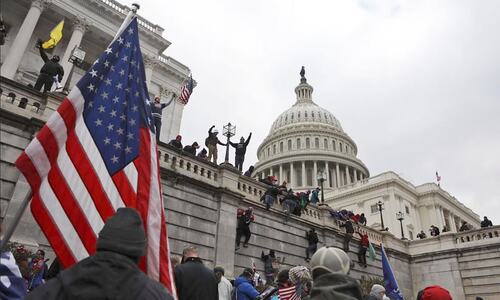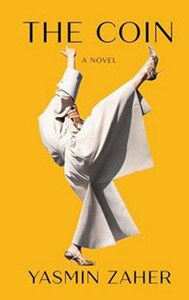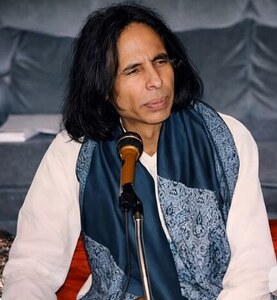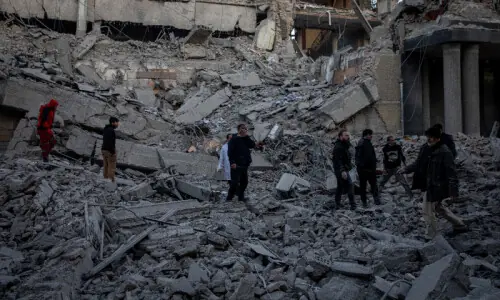Sheheryar Sheikh follows his notable debut novel The Still Point of the Turning World with an equally well-written endeavour, albeit one with a more political bent. Call Me Al: The Hero’s Ha-Ha Journey is a thinly disguised fictional biopic of the thuggish but charismatic Muttahida Qaumi Movement (MQM) leader Altaf Hussain. Creative and poetic licence gives any novelist the right to tackle any subject that he or she may consider intriguing, and the life of protagonist Altamaash — or Al — as recounted by Sheikh comes across as both fascinating as well as enormously entertaining.
When the novel commences, Al is living in exile in Britain and two hapless individuals get pulled into his orbit. Though Ned Steinberg and journalist George Gary Gregory Jaffar believe that they have the upper hand as regards their quarry, Al gets the better of both of them and exquisitely dispatches them in a remarkably skilful double murder using a single bullet. Sheikh then introduces a metaphysical dimension into the story where an angel begins to interact with the souls of both the deceased men. We are given to understand that Jaffar will experience a purgatorial period before achieving communion with the Divine, but Steinberg is not so lucky, and is condemned to a tortuous period in a limbic region of the afterlife: his ultimate fate is utter disintegration. Regardless, both individuals continue to view aspects of Al’s rise and fall over the course of the book; this is fortunate since one grows rather fond of both Jaffar and Steinberg as well as their angelic guide.
But let us return to Al. Enormous of girth, earthily crude and unabashedly unapologetic for the many crimes that can be laid at his door, he remains a powerful and dominant, though markedly hilarious character. Touches of twisted genius abound in the book, such as when Al names his most important henchmen after the virtuous Snow White’s Seven Dwarves, in spite of his own undeniable black-heartedness. The title of the book itself comes from a song by American musician Paul Simon [of Simon and Garfunkel fame] and Sheikh characteristically makes cultural references and allusions to loaded tropes such as Pablo Picasso’s painting ‘Guernica’ and Fyodor Dostoyevsky’s novel Crime and Punishment. Hence, behind Al’s complex identity — which is repeatedly underscored by the stream of consciousness in which much of his tale is told — lies Sheikh’s own unique narrative voice: ironic, controlled, restrainedly passionate and always uncompromising.
Sheheryar Sheikh’s sophomore novel is a thinly disguised fictional biopic that underscores the ugly side of power
Al’s relationship with his parents (which culminates in patricide), his two marriages (both disastrous in their own ways) and his deep (though eventually doomed) love for his pretty daughter Pinky constitute the personal dimension of his story. But Sheikh is most in his element when describing the sway that Al holds over the Pakistan Immigrant Party, and one truly begins to appreciate Karl Marx’s sentiments regarding religion being the opiate of the masses when one watches this heinous spider at work. However, for his masses the opiate is the massive control Al’s persona exerts over them. One of the most chilling moments in the book is found not in its well-crafted torture scenes, but in a telephone call between Al and a fanatical Multani supporter of his, who celebrates the crushing to death of his beloved nephew during a riotous political stampede because he views it as a necessary sacrifice for Al’s cause. Perhaps it is for this reason that the ghost of Steinberg cuts a deal with the Almighty that he wishes to see Al truly suffer before his own spirit disintegrates into nothingness. Be that as it may, although Sheikh’s novel is naturally coloured by personal perception, the author can be commended for doing his homework, especially insofar as his central character is concerned.

Had the book been longer, Al’s relationships with caricatures of Benazir Bhutto, Asif Zardari and Nawaz Sharif (who are unsurprisingly viewed in a strongly uncomplimentary manner by him) might have been sketched in more detail. But then a political novel cannot comprehensively cover every aspect of its protagonist’s life without becoming what Henry James referred to as a “large, loose, baggy monster.” James was referring to the sprawling Dickensian-style novels of the 19th century, but the phrase aptly sums up the literal figure of Al himself. Al’s spirit, however, is as lean and hungry as that of Julius Caesar’s Cassius, and his vision far more Machiavellian. In spite of the fact that much of the novel’s action is situated in the United Kingdom or in chaotic metaphysical realms, Sheikh does a wonderful job of portraying the grit, dirt, cruelty and earthly chaos of Karachi — a city that can rival Batman’s Gotham and Daredevil’s Hell’s Kitchen any given day of the week.
Without a long enough interval on his hands to deal with the traitors in his midst, Al decides he will need to play the game with an extended timeline, of years — maybe decades — to get his revenge. Before that, though, he has to thwart the incoming assassination attempts. First, at the party headquarters, a poser pretending to be one of the Immigrants is caught with a silenced gun in his shalwar and a poison-dipped knife sheathed in the folds of his socks. Once caught, the would-be assassin is carted off to an unmarked house in the suburbs of Karachi, where the skin of his legs is stripped from knees to toes. He doesn’t end up revealing much. — Excerpt from the book
This is not to say that Al maintains his sangfroid throughout; he is often depicted as being angry, impatient, vicious-tempered and even apprehensive. But like H.M. Naqvi’s Abdullah the Cossack, Sheikh’s Altamaash is a brilliantly unique creation. One never gets tired of avidly following him. Indeed, it eventually dawns on the reader as to precisely why GGG Jaffar and Steinberg were so obsessed with him. For obsessed they certainly became, and can hardly be blamed for it, given the pull that Al exerts over whoever he chooses to draw under his spell. But grand characters are at their most interesting when they slip into the realm of the slapstick, as Al notably does during a racist scene on a bus when he copes with the taunts of a bunch of white boys by launching his enormous body at them in weapon-like fashion. For the reader, hilarity ensues.
Larger than life, diabolically callous and yet, at times, almost touchingly human, Al is given so many diverse aspects by Sheikh that the book occasionally seems like a mini-refraction of the terrifying ‘Guernica’ — a canvas that immortalises the horrors of war and underscores the ugly side of power. Jaffar and Steinberg ask the Angel numerous questions, but the most pressing and disturbing one that is left unanswered at the end of Sheikh’s novel is why so many men and women — who were far more moral people than Al — lost their senses when it came to succumbing to his rhetoric. The true answer may lie in the mystical area which constitutes the Angel’s domain. But both Angel and Al are silent on this subject.
The reviewer is assistant professor of social sciences and liberal arts at the Institute of Business Administration, Karachi
Call Me Al: The Hero’s
Ha-Ha Journey
By Sheheryar Sheikh
Harper Collins, India
ISBN: 978-9353571474
304pp.
Published in Dawn, Books & Authors, November 3rd, 2019
































